Right down the bottom of Aotearoa, in the southwest corner – where kākā monkey around in the trees and humpback whales breach the surface of deep, silky water – there is a boat. On the hull of this 27m expedition vessel you can read its name written in bold, white letters – Flightless.
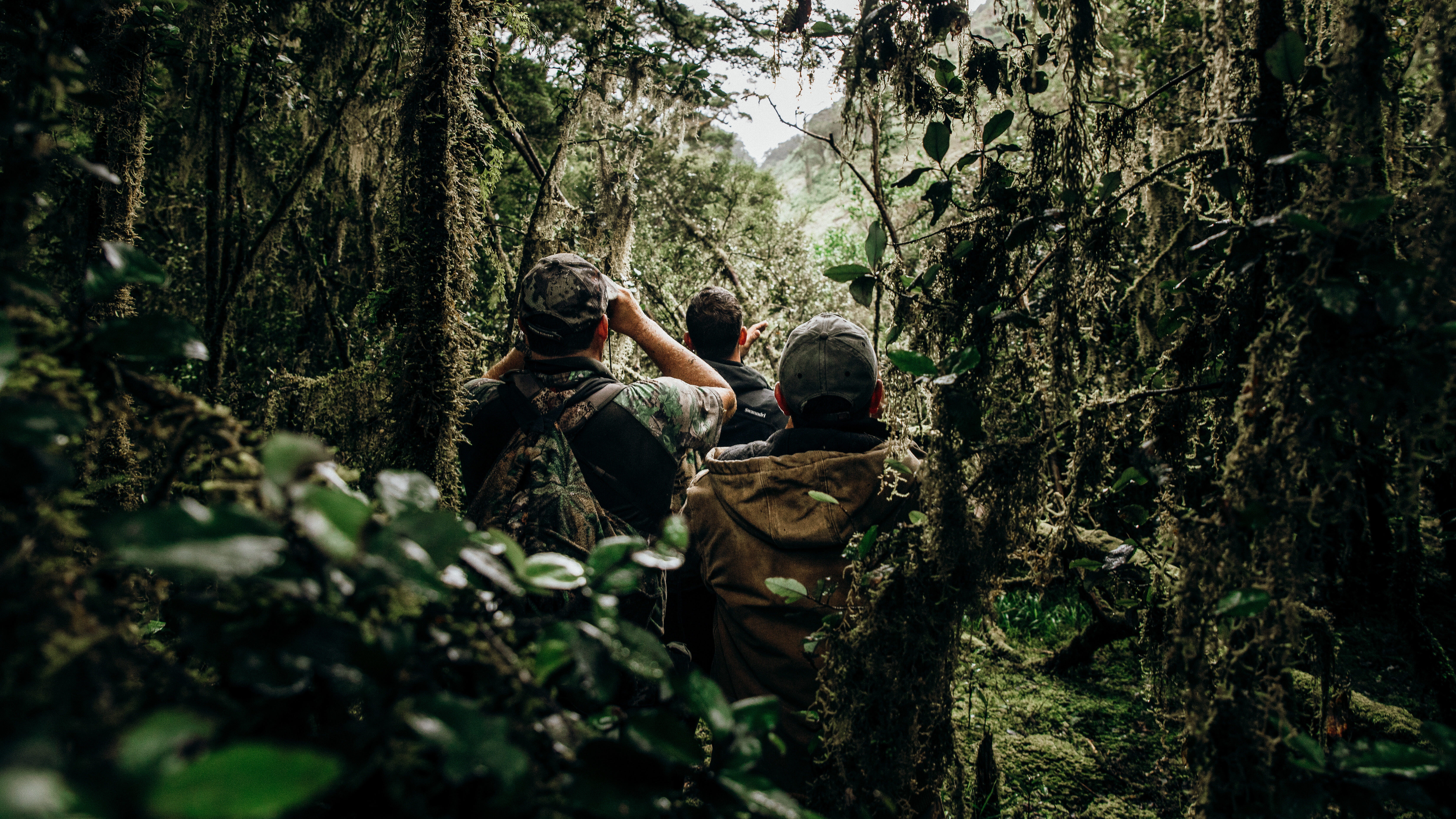
It belongs to Maria Kuster and Sean Ellis, founders of eco-tourism charter company Pure Salt based in Tamatea / Dusky Sound. The pair have made predator control an integral part of their work. And they use their assets and know-how to give back to the land that helps them make their living.
All in a day’s volunteering
A boat bobs on the clear waters of Tamatea / Dusky Sound.
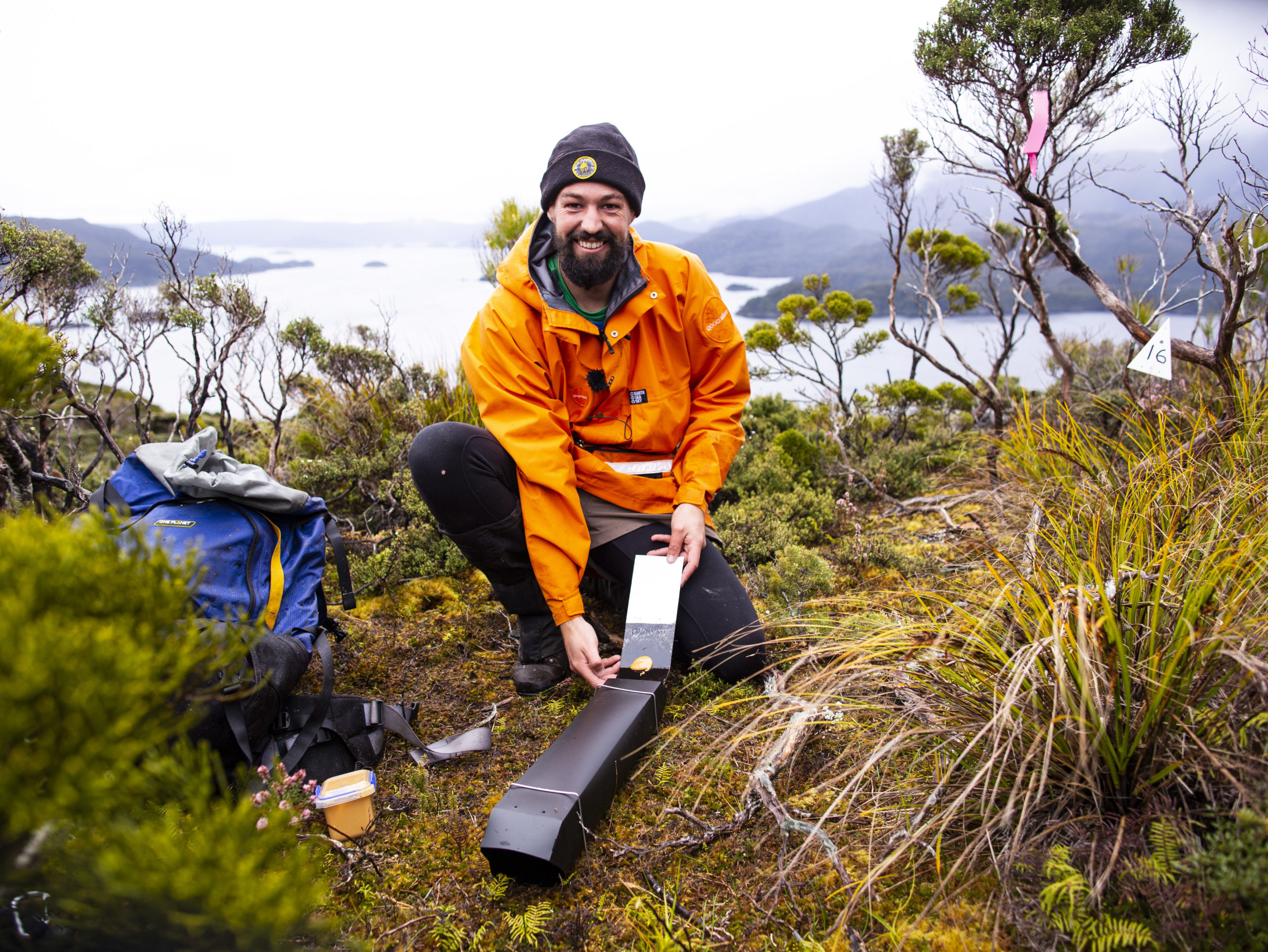
On board the deck you can see people going about their day. Some of them are getting ready to disembark onto a small island with backpacks full of gear – are those fresh eggs in dedicated egg holders and a notebook I see?
It looks like they’re setting off to re-bait a trapline and do a bird count.
Some people are staying behind with fishing rods, getting ready to catch some kai for dinner.
While this hubbub is going on, there is a woman watching over it all, helping people prepare to leave the vessel – she seems like she knows what’s going on.
This woman is Maria Kuster, co-owner of Flightless and founder of eco-tourism charter company Pure Salt.
The conservation expedition we’ve just been witnessing is one of many that Maria and partner and (and business co-owner) Sean put together every year. It’s a familiar voyage where they take volunteers to various islands in Tamatea / Dusky Sound to re-bait or install traplines, do bird counts and monitor pests.
Nature’s haven: a vision worth the mahi
These islands, if cared for right, have the potential to become important havens for native birds, insects and reptiles and could become the biodiversity hubs of the future.
Maria and Sean’s vision is for Tamatea / Dusky Sound to be one of the most intact ‘bio banks’ on earth. A place where endangered species can safely grow their numbers, and then be relocated to other predator-free locations throughout the country.
It’s this vision that drives the work Maria and Sean do, and they’ve teamed up to support the Department of Conservation (DOC) to make it happen.
As well as running a successful charter boat company, taking guests on tailor-made adventures throughout Fiordland, Stewart Island and beyond, Pure Salt is on a mission to make it all count – by dedicating many of their expeditions to conservation work.
A little island starts a big ambition
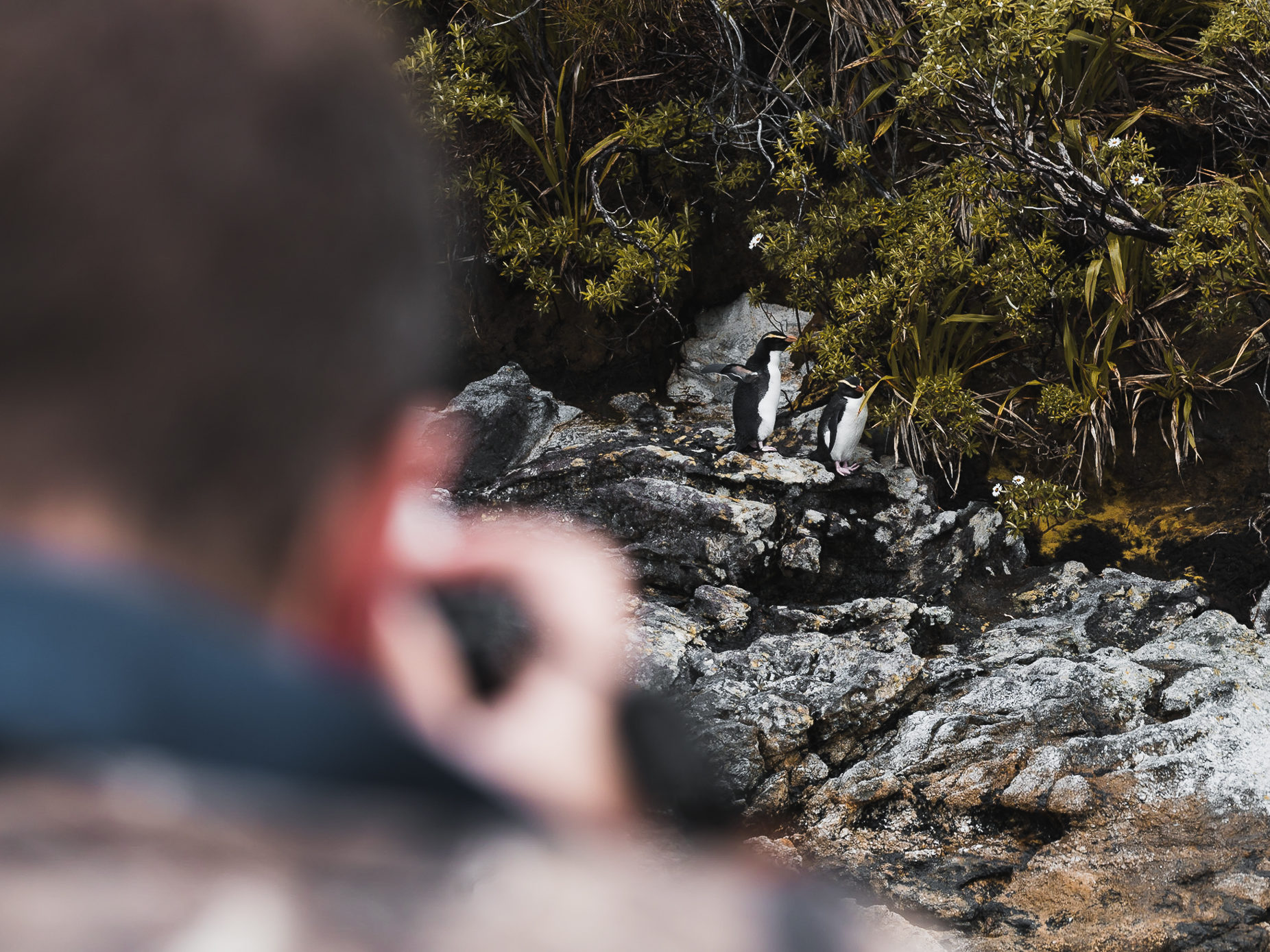
“It all started when we sat down with our local DOC office over a cup of coffee,” Maria says.
“We knew about the vision of restoring Tamatea to a predator free status and making it one of the most pristine places in the world – and we asked how we could help.”
Sitting down with Fiordland DOC ranger at-the-time Lindsay Wilson, it became pretty clear what was needed.
They had a boat. DOC had an island that needed help.
The little island in need of a helping hand was Mamaku Indian Island, and DOC was struggling with an introduced predator problem.
DOC had conducted a 1080 operation on the island previously, but they didn’t have the resources to follow it up with trapping.
“The island had become re-invaded,” says Maria.
Maria and Sean agreed to take up the challenge and within eight months there was a whole network of traplines in place, and regular volunteer monitoring.
Building it into the business
To begin with, the project was something Maria and Sean embarked on by themselves, with no initial plan to weave it into a business.
They had previously been working on other charter vessels in and around Fiordland and now they just wanted to give back to this special place that had given them so much.
At the same time, they were embarking on a new business venture, taking paying guests out on Flightless for week-long voyages to explore Fiordland, and it all kind of snowballed.
Soon they were taking people on multi-purpose journeys. Clients would pay to charter the boat for an adventure but, amongst the fishing and kayaking, they would also help re-bait traplines and count birds.
It turned out, for their clients, this was just as exciting as all the other stuff they could do – and definitely more rewarding.
A lot of clients would go on to donate traps to the projects.
Mixing business with pleasure… and conservation
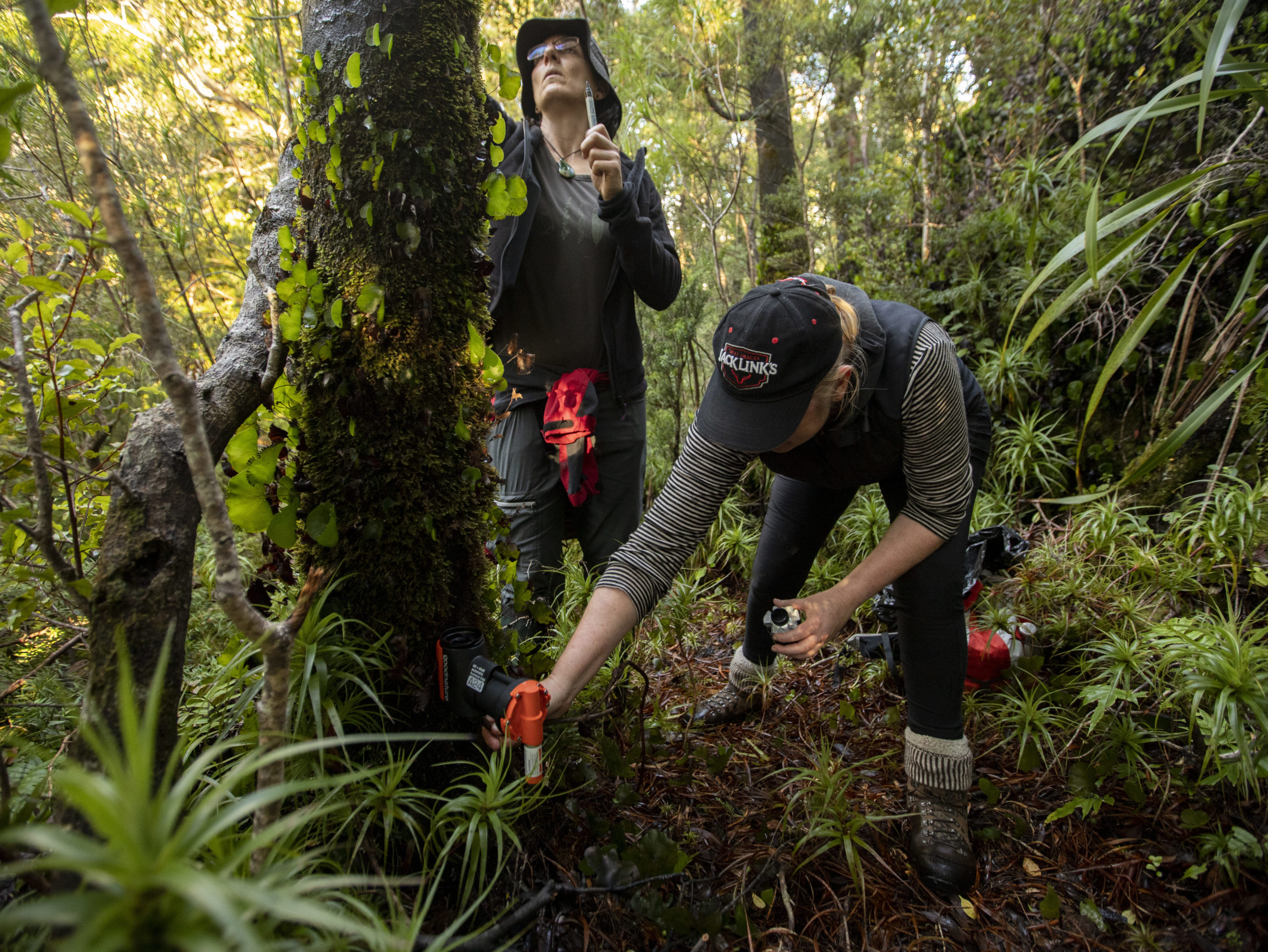
“People tend to think the business is where you make money and then you do the ‘good stuff’ on the side,” Maria says.
“In principle we are a commercial business and people come on board to cruise, to kayak, to dive and take photos – whatever it might be, but through the connection people build with Fiordland, over the time they spend with us, conservation naturally becomes part of a lot of trips.
“You start having those conversations with clients on-board, they hear about the projects we do and suddenly you have 12 people on board that would love to re-bait a trapline or donate traps,” Maria says.
While a lot of this happens organically, clients looking to give back to nature specifically come to help out, paying their way to join conservation expeditions, with all funding raised going directly to buy equipment and traps.
It’s not just about what’s above the water either. Pure Salt runs another project called Tamatea Blue, where volunteers who dive join in to help clean up rubbish sites where boats in the past dumped waste overboard.
Onwards ho!
When asked what’s next for Pure Salt, Maria is excited.
“The collaborations with DOC and other businesses have been blowing me away and knowing that it does make a difference and seeing others get excited keeps us going.”
Over the last decade Maria has seen firsthand the positive impact trapping and predator management has had on the environment.
“Ten years ago, cruising around the islands that didn’t yet have restoration projects on them and on the mainland, it was quiet. You’d probably have more bird song in a backyard in Nelson than you would in some of these places – and that was scary!
“But in ten years DOC has done a lot of wonderful work on these islands, and we can hear the difference.
“In some places it’s actually getting louder,” she says.
“I love just sitting out there on Flightless and hearing the water lap, seeing tīeke (saddleback) feed in the tidal zone and hearing loud flocks of kākā again.”
Once they’ve finished with the restoration project on Mamaku Indian Island they will be moving on to other islands throughout Tamatea / Dusky Sound, including Resolution Island (Tau Moana) – the largest island in Fiordland.
“This may even involve getting another vessel,” Maria says.
“We all know biodiversity is important and that we need to look after what’s around us. Personally, I’m a strong believer that if everyone just looked after what was around them, then we wouldn’t need to worry about these big problems in the world.”
Using what you have to make a difference
Fiordland is New Zealand’s largest national park, carved out of the mountains by glaciers 20,000 years ago; more than a million hectares of deep fjords, with steep mountains rising up, covered in clinging subtropical rainforest.
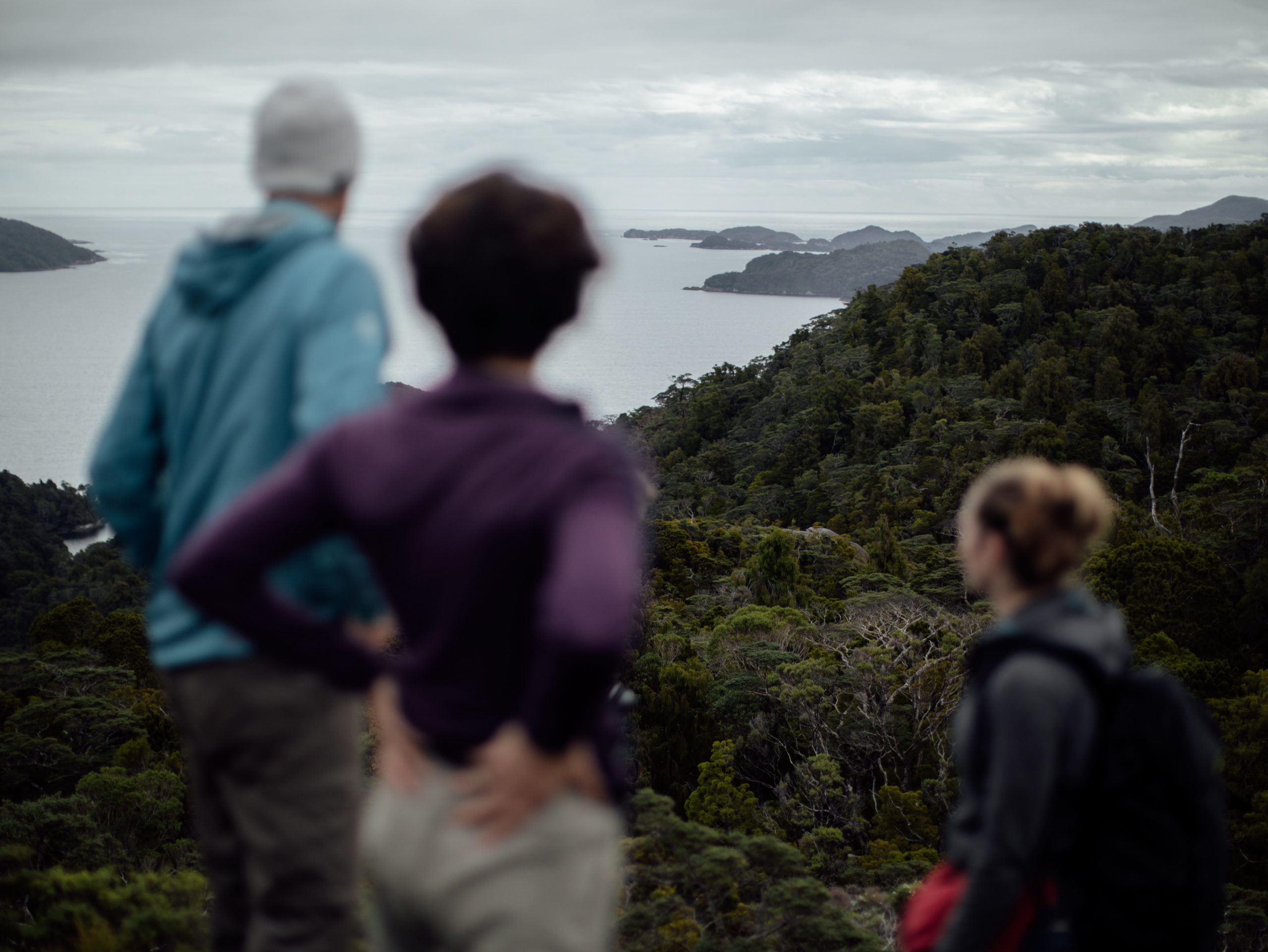
Such a large conservation area is going to need a lot of people caring for it, and this is where people like the Pure Salt team come in.
While their business depends on this place, this place depends on them too. It’s up to local communities and businesses, alongside the Department of Conservation to help keep predator numbers down and keep the flora and fauna safe from harm.
Maria encourages other businesses to find out how they can help out in their own local area.
“If you’re thinking about it, just sit down with somebody from your local DOC office and get an idea what your local strategy needs and what your piece of the puzzle is.”
“Make it count and make it happen,” she says.
Want to make a difference with your business?
Check out Pure Salt to find out more about their work – for advice on how your business can make a difference, Maria and Sean are happy to help.
For further inspiration, read our success stories of businesses working towards the predator free mission.

